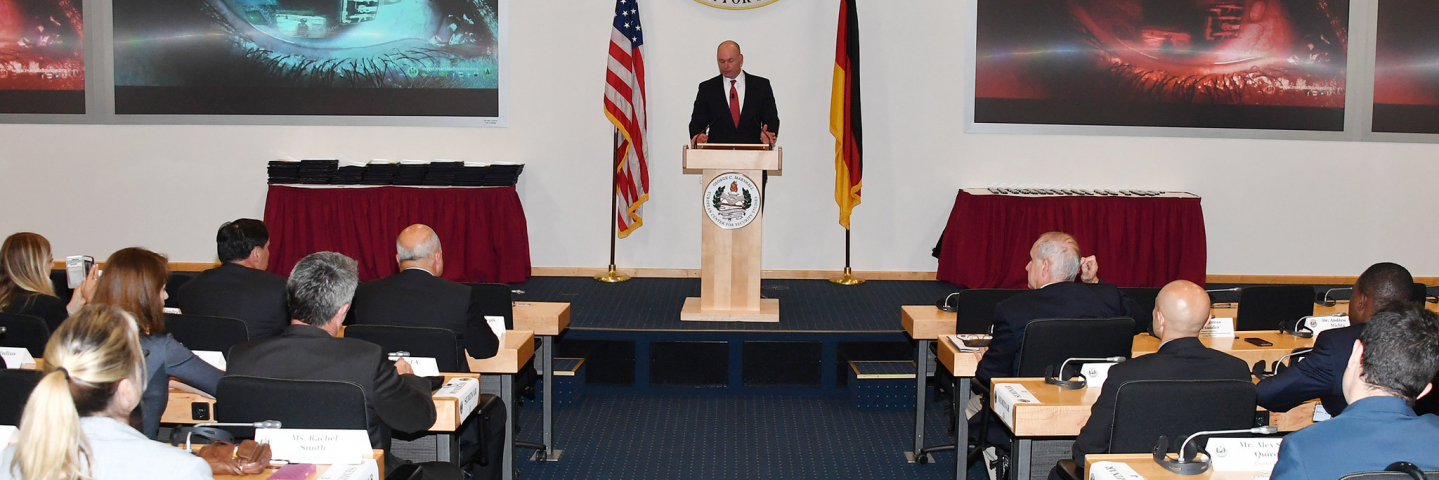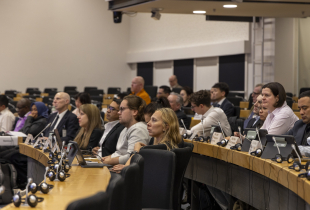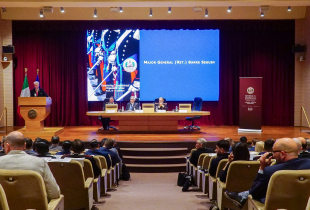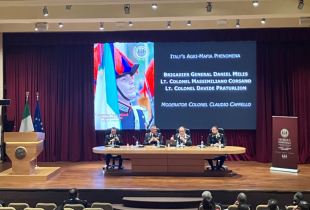
Counternarcotics, Global Threats Official Advises Security Professionals on CTOC Strategy
By Emma Bareihs
Public Affairs Office
George C. Marshall European Center for Security Studies
GARMISCH-PARTENKIRCHEN, Germany (Aug. 2, 2019) – It is essential to create a strategic plan before attempting to tackle a problem like transnational organized crime, said the Deputy Assistant Secretary of Defense for Counternarcotics and Global Threats Thomas Alexander at the George C. Marshall European Center for Security Studies during the Program on Countering Transnational Organized Crime here Aug. 2.
“We must identify the problem, work together to identify a solution and a strategy and then work together to go after it,” he said. “It’s a global threat and by definition it’s going to require all of us to solve the problem so we need to work together to identify what we can do to solve it.
Alexander addressed 104 security professional participants from 53 nations as the graduation speaker for CTOC 19-15 on Aug. 1. This is Alexander’s third time speaking at a CTOC graduation. He previously spoke to CTOC graduates in Aug. 2018 and March 2019.
“When you leave here, I want you to keep the core elements of strategy development at the forefront of your minds, particularly as you think about how to fight transnational organized crime,” Alexander said during his graduation remarks.
Program Director for CTOC 19-15 Joe Vann said strategy development was a strong focus of the program.
“The focus of the CTOC program is on strategy development to enable government professionals to be more effective in countering the activity of transnational criminal organizations,” Vann said.
Participants took part in lectures, case studies and seminar discussions about the activities of drug cartels, terrorists and transnational criminal organizations in order to understand the necessary strategic level approaches to combating these threats.
“I think the faculty and staff are doing a great job here. They’re doing exactly as I and my predecessors envisioned for what the CTOC course should be. I support it 100 percent,” Alexander said.
Alexander hopes graduates can move forward with the partnerships they have established over the course to combat transnational organized crime. He said the best way to get at the problem is build relationships.
“I’ve gotten to see the sense of camaraderie you’ve established, and how that positive energy has driven your approaches to mapping, tracking and attacking these illicit networks,” Alexander said to the participants on the course’s last day.
“We face a complex challenge that won’t be resolved overnight. We inherited this fight, and we’ll be in it for a while. But in an era of interconnectedness, we know that the stronger our network is, the better postured we will be to disrupt those of criminals and terrorists,” he concluded.


